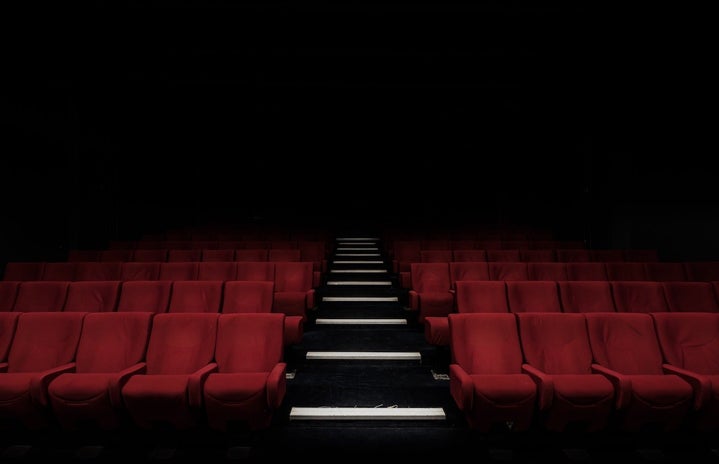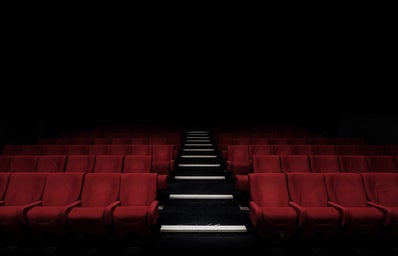Since the beginning of the pandemic, theatre companies both big and small have taken their seasons online and created a new form of theatre: Zoom theatre. Using the infamous video chatting app, entire productions, from the rehearsal room to the final performance, take place over the internet. Having participated in numerous zoom shows both in front of and behind the screen, I’d consider myself somewhat of an expert by now. The first time I did I show online, I wasn’t really a fan. It’s been almost a year since then, and I’m sorry to say that my opinion really has not changed. Zoom is lonely and isolating, and attempting to create theatre using it only exacerbates that fact. But maybe I was alone in that thought process. Maybe I was just being too cynical. In order to find out what others thought, I interviewed three students at The New School for Drama who all had unique and interesting stories about how making theatre online had affected them.
“No one wants to say it, but it’s not as good. For performers, it’s not as good. It’s so much harder to connect with your scene partner and actually feel like you’re performing. From a storytelling perspective, there are so many limitations and it’s so much harder to convey information. I also think it’s a lot harder to capture an audience’s focus because they’re on their computer.” Emma Richmond, a third-year student at The New School, founded Play Online, a company dedicated to creating both online theatre and opportunities for community building. Since last year, they have produced a play festival, a sketch comedy show, 2 musicals, and numerous artistic check-ins and workshops with entertainment professionals. “We had been tossing around the idea of starting a student theatre organization within the school of drama for about six months. I think it’s something that the school needed and continues to need. It was reacting immediately to the pandemic but also trying to fill in that void.” Despite the pandemic, play online has managed to continuously produce work and allow students to practice their craft through writing, directing, acting, and even creative technologies.
“A positive of online theatre is… uh… I hate it. I literally hate it.” In the fall of 2020, Cecilia Viveiros collaborated with Emma Richmond, in order to co-direct “We are the Tigers”. Like me, however, she also found the platform to be thankless and frustrating. After we both finished laughing at her brash assessment of the new art form, she clarified, “I think we’re doing our best and I’m proud of the work that I’ve done, but oh my god. This is a nightmare. And it’s making me have to be extra creative, which I love. It’s possible and it’s doable and it’s creative but I just, I literally hate it and I don’t want to do it anymore.” Theatre is a very community-based experience, so directing the show required a lot of creativity. “I am a very hands-on person, and so I find it really difficult to not be able to like, stand up and engage with you all….So when I was directing online I would always find myself wanting to go move you all or like do something like that and not be able to, and that was really difficult.”
“Zoom theatre has to become its own medium in order for it to become art that you can respect and approach without this contempt because there is a lot of contempt with zoom theatre.”Michi Zaya Tumur has a slightly more positive outlook on zoom. Michi, a fourth-year student at TNS, founded Amplify Theatre Collective with Jonon Gansukh after a particularly discouraging experience trying to direct a show in an online theatre festival. “Amplify was a response to our experience there, because the festival we were in had a very specific group of actors we could have an audition, and within that community, it just didn’t serve what we needed for that role. After eight hours of being in auditions, we saw maybe one actor who could fit the main role of the play, and we had to wait another 24 hours to get 2 self-tapes. It was just really disheartening to go through all of these faces that just didn’t match what we were looking for. It was predominantly white. We sat through eight hours of seeing white actors doing lovely work, and then we see one actor who is Asian and fits the Asian role of this play we’re trying to put up. It just was really frustrating to not have a choice.” So Michi and Jonon decided to exit the festival and create their own, centering people of color. They put out a call for scripts and everything began to fall into place. “We got all of these plays and I was really happy with them because no one play is necessarily the same perspective, which I felt like is something that I am frustrated with a lot of work just as a feminine nonwhite person trying to do theatre, I’ve read a lot of plays about people who don’t look like me or people who aren’t like me or people who haven’t grown up like me, and it’s so nice to read all of these stories of these experiences that I don’t necessarily relate to in every way, but stories that have so much heart in them, and stories that have this very vulnerable sense of life….We were telling all these stories about people who aren’t cis, people who aren’t straight, and people who aren’t traditionally necessarily colonialist American. That’s where we came up with the title ‘Firmly Rooted: American Stories’. There was this idea of, as much as these people’s identities get discredited by others or try to get discredited by systems and structures, it is firmly rooted that they are still American, solely because they’re here.”
It was at this point that I realized why zoom theatre is valuable, even for all of its faults. It allows artists to continue to produce work and practice their craft, even if the platform is frustrating and fickle. It’s also an interesting way to mix media, as Michi pointed out to me. “It’s a little bit of filmmaking, but it’s also a lot of live performance.” Zoom theatre also opens up accessibility. “We are the Tigers” had a cast of people from all around the world. The informality of the platform also allowed for unique opportunities, as Cecilia mentioned in her interview. “It meant a lot to me that they let us do it. Part of me feels like if we weren’t in a pandemic and they didn’t feel kind of bad for us, and they couldn’t really give it to us to be just an online show to be produced in a month, they wouldn’t have, so I do really feel blessed and honored that we were given the rights and the ability to be trusted with doing that for the first time not on an off-broadway stage, especially being students, so that was very cool.” She also pointed out how having a production be online expands who can be a part of the audience. “I feel like a lot of the time, because we’re in college, it’s very rare that everyone’s family can make the trip to come, and even if they can, only one person can. It’s very rare that your friends and family have such access to it.” Emma hopes that the work created in this pandemic can transfer over to real-life opportunities. “Now we’re looking towards the fall and looking towards working within theaters at The New School, which I don’t think would have been possible without being able to create Play Online and showing the school what we can do beforehand. The fact that we are able to say, ‘look, we can do a show, and a thousand people can come to see it’ lends us a lot of legitimacy when we’re saying ‘ok, now let us rent out a theatre because people want to see our work, you should give us this chance to show it in person”. Although zoom theatre may not have been the most enjoyable or the most polished stage theatre artists have worked on, it still allowed for a chance to continue growing, even throughout a period of isolation. Michi had the best perspective on the situation. “It feels kind of funny to say. It’s being like ‘I drew in crayon, so I’m not afraid to go into acrylics’ but it is the idea that if you can use the crude stuff and be proud of it, once you get your hands on the better quality you’re still an artist. You’re still that resourceful, clever artist who made something.”



